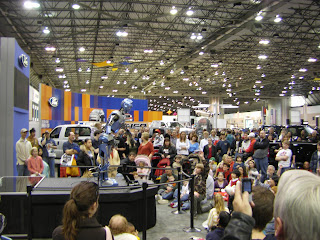
Watching the long lingering fall colors this year was particularly rewarding. November stretched on without a hard freeze and the leaves hung onto the trees much longer than they normally did. Trees like the Bradford Pear developed deep purple colors that I had never seen before, and that's just one example. I learned a long time ago that many of the colors of fall are there in the tree all the time, but are masked by the green colors produced in the summer. So Fall just unmasks what was always there.
This made me think of the many things in life that are masked or drowned out, and therefore always with us, but invisible. It's as if you could turn down the ever present background noise and the other sounds would suddenly be audible. It's as if reality is hidden from us on a daily basis.
For some reason, this thought brought to mind the privacy of people. At the time I thought of this, I was driving home from work, in a fine mood, enjoying the fall colors and feeling philosophical. I had just seen some pictures of a coworker's children that she used for a screen saver. Her computer acts as a printer server in the office, so it is often left on for long periods when no one is there to watch the pictures. It reminded me of the old question, "If a tree falls in the woods and no one is there to hear it, does it make any sound?" If no one is looking at the pictures, do they remain unappreciated? It's as if they are crying out their expression to nothing. "I'm here!" Silence. Does the space somehow gain something by the people being shown there? Sometimes when I am alone in the office and see the pictures, I feel like I am somehow violating their privacy.
This is kind of what's happening to personal privacy as we use social media more and more. These people all around us have personal lives and private thoughts that are not visible to people that work next to them for years. Some employers proudly profess to looking people up on Facebook when they consider hiring them. Forget crafting a carefully worded resume, your spring break in college when you were involved in the taking jello shots off of a bare belly will limit your future chances for employment, regardless of how qualified you are. We shove our personal lives online in other people's faces. We trust that most people will never read what is written or look at the photos that are posted, and mostly, we are right. People are busy, and mostly self-centered, but usually will very short and poorly focused attention spans.
I've often felt quite safe writing whatever I thought or felt in this blog and the other blogs that I maintain, because for the most part, no one is listening. The one person that could possibly see some of the blog entries and care doesn't use a computer or understand exactly what blogs are. It's strange, I've felt safe in anonymity and obscurity from posting things online that are accessible to anyone that cares to read them. Yet, many of the things I post here I would not say to relatives or business associates, because it would start an unnecessary fight. I admit that part of the thrill of expressing myself in a blog is that this is MY space and I get to say whatever I want and no one can interrupt me or disagree with me (although people could beg to differ in the comments, but since no one reads it, no one comments, as you can see by the history of comments in the blog). It's as if I am invisible in plain sight.
Getting back to the theme of things that are always there, yet hidden, I've been hearing a lot of genetic studies lately that focus on genetics. For a long time, science toyed with inheritance, then it was genes and DNA, and now we look more and more to how genes function. The study of Epigenetics has been focusing lately on what environmental conditions cause the expression of genes. Some are focusing on how your genes are expressing and if this can be controlled to increase your lifespan and health. This is the modern hard core science version of New Age Medicine, where they were always trying to do things to improve your health (which always seemed so absurd to me). However, the goals are alike, and some of the conditions that cause the expression of certain genes lead me to believe that it is just like the practices of some of the New Age healers and practitioners. Perhaps it's something which was always there and unproven, hidden in plain sight. Now science might be shining its light on what used to seem like fairy tails and hocus-pocus.
Other forms of science besides genetics have the possibility to uncover beneficial results from old rituals and practices. One particular art that this brings to mind is Tai Chi. The Chinese have done this for health for hundreds of years, but it is unquantifiable. You believe in Tai Chi like you believe in a religion, you have faith without proof. I have often thought that this exercise serves to provide pumping action for the lymphatic system. The lymph vessels do not have a heart, like the blood system, so it does not actively move it's lymphatic fluids around. We know that this system is important in the body's response to infection and injury, but I'm not sure anyone has studied it much. There are certainly no regular practices for patients that are for exercising the lymphatic system. This seems odd, since this system clears away toxins and sends out an immune response throughout the body, yet the only thing we have to help it is a centuries old Chinese folk remedy. Perhaps the healing benefits of Tai Chi were there all along, only waiting to be discovered by science.
I have one irrational belief that has not been proven by science. I have always felt that ESP might have something behind it. However, like clairvoyance and speaking to the dead, the practice has often had its shady practitioners. Claiming to be telepathic is not proof that you actually are telepathic. I can think of dozens of ways that stage magicians could fool an audience into thinking they could read minds. Yet, it stands to reason that the electrical impulses that make up thought are somehow being transmitted in some form of energy out from the brain. And if you were going to fashion a receiver for these signals, what better device to use than another brain? It's just a matter of cranking up the intensity of the signal and learning to interpret what you are "hearing". I've heard speculation that people are born somewhat telepathic, and learning to speak makes the telepathy atrophy and go away. I remember an argument that said basically that language would certainly confound telepathy because most of what we say is not what we really think. We learn to lie convincingly from an early age. I don't mean that we are all deceitful, I mean that we often suppress irritation, swallow complaints, and say what we think people want us to say, not what we really think. If you could read the people's minds around you, you would probably be depressed and amazed at how different it is from what they are saying.
In the future where personal privacy is completely non-existent, it might be akin to hearing people's thoughts, regardless of how unflattering or unkind.














